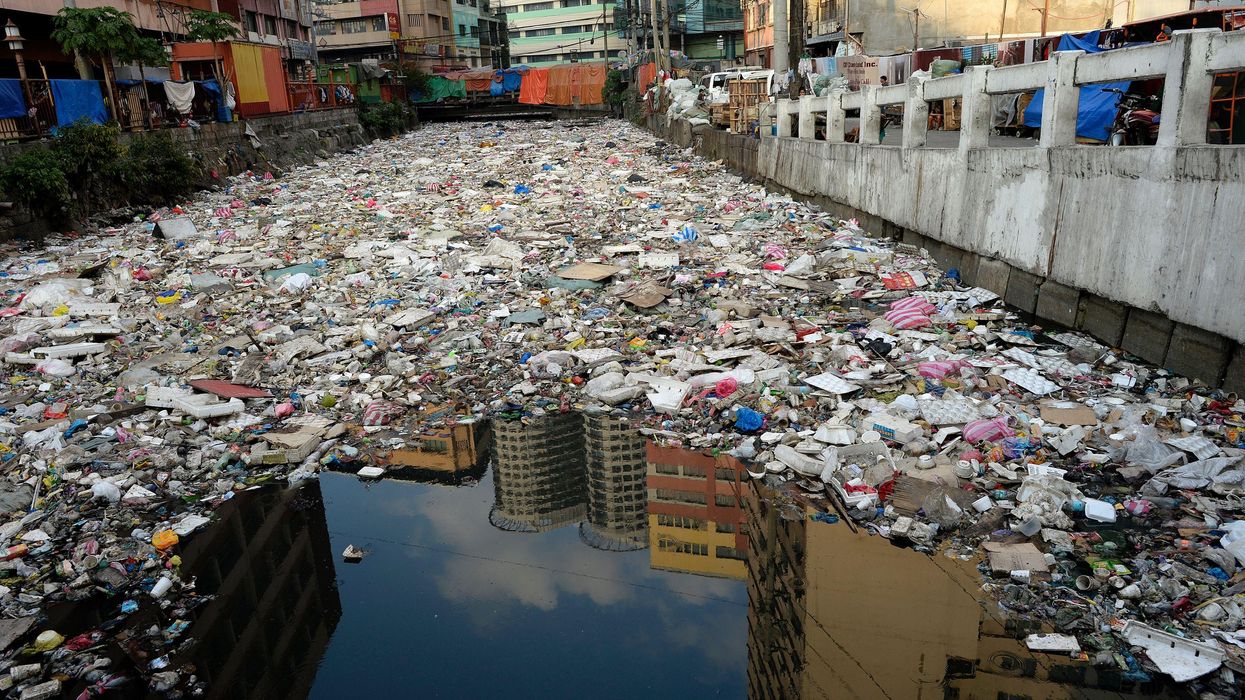(CNN) — The world is producing a record amount of single-use plastic waste, mostly made from polymers created from fossil fuels, despite global efforts to reduce plastic pollution and carbon emissions, according to a new report released Monday.
The second Plastic Waste Makers Index, compiled by the philanthropic Minderoo Foundation, found the world generated 139 million metric tons of single-use plastic waste in 2021, which was 6 million metric tons more than in 2019, when the first index was released.
The report found the additional plastic waste created in those two years equates to nearly one 1 kilogram (2.2 pounds) more for every person on the planet and was driven by demand for flexible packaging like films and sachets.
In recent years, governments around the world have announced policies to reduce the volume of single-use plastic, banning products like single-use straws, disposable cutlery, food containers, cotton swabs, bags, and balloons.
In July, California became the first US state to announce its own targets — including a drop of 25 percent in the sale of plastic packaging by 2032. In December, the UK extended its list of banned items to include single-use trays, balloon sticks and some types of polystyrene cups and food containers. Bans are also in place in the European Union, Australia, and India, among other places.
But the report found that recycling isn't scaling up fast enough to deal with the amount of plastic being produced, meaning that used products are far more likely to be dumped in landfills, on beaches and in rivers and oceans than to make it into recycling plants.
The index named just two companies in the petrochemical industry that are recycling and producing recycled polymers at scale: Taiwanese conglomerate Far Eastern New Century and Thailand's Indorama Ventures, the world's largest producer of recycled PET for drink bottles.
Indorama Ventures is also number four on a list of 20 of the world's biggest producers of virgin polymers used in single-use plastic. The list is led by US oil major ExxonMobil, China's Sinopec and another US heavyweight, Dow, in that order, according to the report.
And in making polymers bound for single-use plastic, those 20 companies generated around 450 million metric tons of greenhouse gas emissions — around the same amount of total emissions as the United Kingdom, according to Carbon Trust and Wood Mackenzie, which analyzed the data. Last June, the UK's Office for National Statistics said UK greenhouse gas emissions fell by 13 percent to just over 478 million tonnes of carbon dioxide equivalent (Mt Co2e) in the year to 2020.
"It demonstrates beyond any doubt that the plastic pollution problem is getting much bigger and is being driven by the polymer producers, which are of course, driven by the oil and gas sector," said Andrew Forrest, Minderoo founder and chief executive of iron ore giant Fortescue Metals.
He's proposing a "polymer premium" on every kilogram of plastic polymer made from fossil fuels to give people, companies and governments a financial incentive to recycle more.
"In the advanced world, that polymer payment will lead to automatic mechanize collection. In the developing world, it'll lead to people who would not otherwise have any work, having work making sure there's no plastic waste going into the ocean, there's no plastic waste on streets, there's no plastic waste poisoning wildlife," he said.
Last year, the United Nations Environment Assembly, the world's highest-level decision-making body on the environment, agreed to create the world's first-ever global plastic pollution treaty.
An intergovernmental committee is working to a 2024 deadline to draft a legally binding agreement that would address the full lifecycle of plastic, from its production and design to its disposal.
The-CNN-Wire
™ & © 2023 Cable News Network, Inc., a Warner Bros. Discovery Company. All rights reserved.
- World Governments Create Treaty to End Plastic Pollution ›
- British Government to Ban Single-Use Plastic Products ›


















































